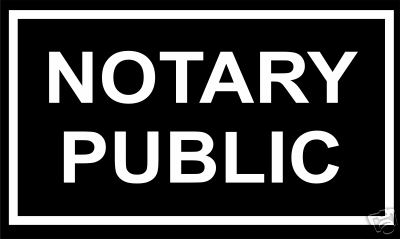
So you have a document that you want notarized, or indicates to get notarized. You sit down with the Notary Public, he/she looks it over, and indicates that there is no notary certificate, and that you need to choose between an Acknowledgment or Jurat. What is the difference? Why do I have to choose? Can’t you just stamp the page? These are some question often asked by customers.
Why do I have to choose?
The Notary Public is not a lawyer, and is never permitted to choose what Notary Act you need, unless they have an active license to practice law, or can tell what Notarial act is required from it being indicated within the document. Therefore, it is up to the Notary Public to explain the differences between the two types of notarial acts so that you may make an educated decision, or consult a lawyer to decide which act is required.
What is the difference?
An acknowledgment is a notarial act that requires that you be present in front of the notary, acknowledge signing the document, present valid id that matches the document, and the notary signs off and seals that you appeared, were identified, and acknowledged signing. This type of notarial act is the most commonly used/required.
A jurat requires you be present in front of the notary, present valid id that matches the name within the document, but this notarial act requires that you must take an oath swearing to the truthfulness of the document and its contents, then you must sign after the oath in the presence of the notary. This is most commonly used for court documents, affidavits, etc.
Can’t you just stamp the page?
Simply put, NO! A notary is not permitted to affix the notarial seal to any paper that does not have the correct notarial wording and have it be filled out and ready for notarization. This is to prevent fraud, and to ensure that the document will likely be able to be recorded with the county, state, etc.
Not everything can be notarized, and everything needing to be notarized requires a notarial certificate be present. A notary may not notarize blank documents, photographs, documents which do not contain the name of signer, and require the signature of the signer. Each document must contain a statement of some sort, the name of the signer within the content of the document, the date of the signing, it must be completely filled out, and have a notarial certificate or the signer must choose one to have a loose certificate attached.
